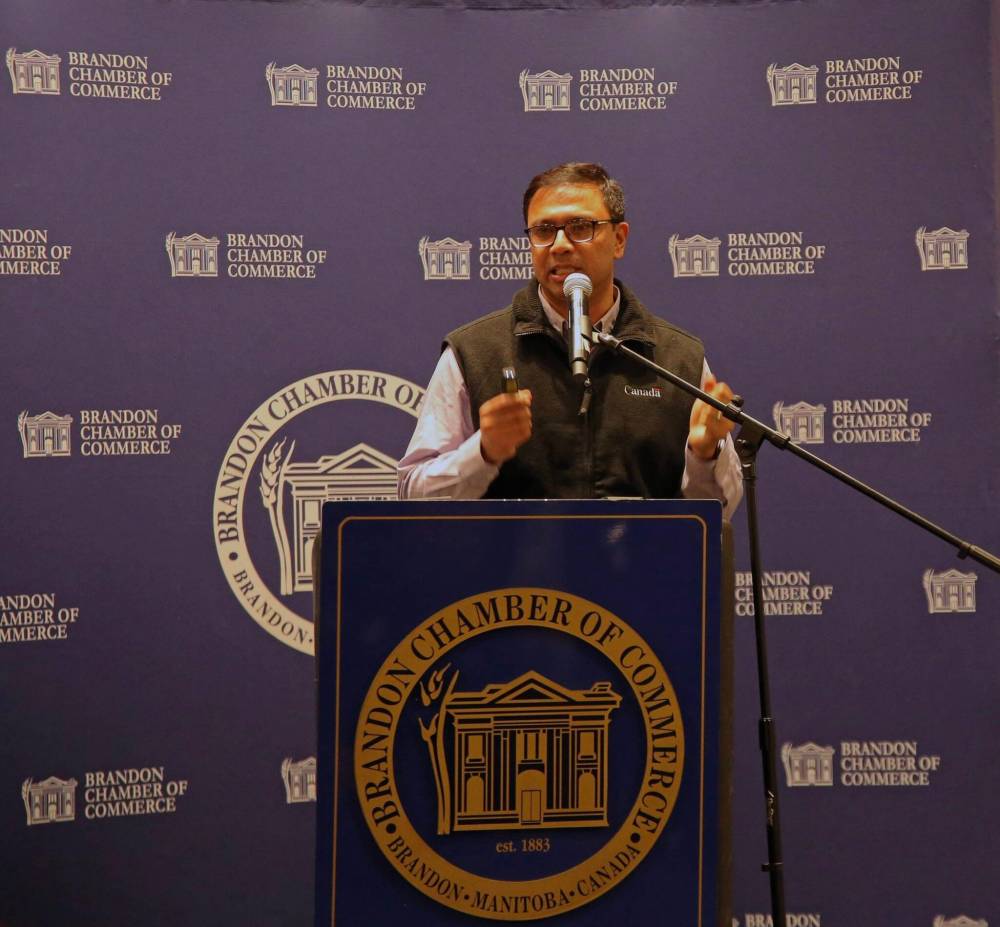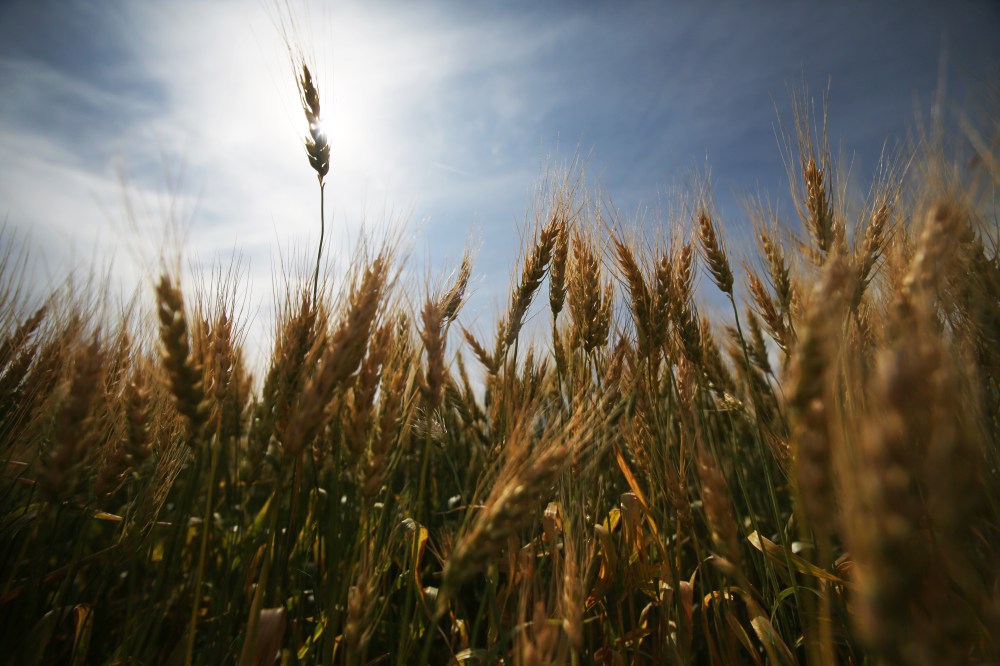Ag research focus shifting from GMOs to gene editing: Researcher
Advertisement
Read this article for free:
or
Already have an account? Log in here »
We need your support!
Local journalism needs your support!
As we navigate through unprecedented times, our journalists are working harder than ever to bring you the latest local updates to keep you safe and informed.
Now, more than ever, we need your support.
Starting at $15.99 plus taxes every four weeks you can access your Brandon Sun online and full access to all content as it appears on our website.
Subscribe Nowor call circulation directly at (204) 727-0527.
Your pledge helps to ensure we provide the news that matters most to your community!
To continue reading, please subscribe:
Add Brandon Sun access to your Free Press subscription for only an additional
$1 for the first 4 weeks*
*Your next subscription payment will increase by $1.00 and you will be charged $20.00 plus GST for four weeks. After four weeks, your payment will increase to $24.00 plus GST every four weeks.
Read unlimited articles for free today:
or
Already have an account? Log in here »
Hey there, time traveller!
This article was published 17/01/2025 (380 days ago), so information in it may no longer be current.
A Brandon scientist says the future of agricultural crop research in Canada will be focused on gene editing and trait study, rather than Genetically Modified Organisms (GMOs).
Santosh Kumar — a scientist at the Brandon Research and Development Centre — made these remarks during a keynote address at a luncheon hosted by the Brandon Chamber of Commerce on the “The Future of Agriculture.”
Kumar told the Sun on Thursday that his work for the Government of Canada focuses on breeding crops that are more productive without the use of foreign DNA. This improves the quality of crops, and is more acceptable in the global market, Kumar explained.

He also emphasized that Canada sells most of its wheat to other countries. “We never have enough wheat to satisfy the global demand,” he said.
To ensure that Canada retains its strong position in the agriculture market in the future, Kumar said researchers are breeding better crops, while staying away from genetically modifying them. A big reason for this is that Canada needs to be able to sell what it grows.
And the GMO label can turn some countries away, he said.
Crop bioengineering research that incorporates gene editing, genomics and phenomics are preferred, Kumar stated.
With this in mind, Kumar said his work at the Brandon Research and Development Centre is focused on non-GMO research methods that still improve crops. Wheat and barley are examples of foodgrains the centre is working on.
To bolster the future of Canada’s foodgrain industry, scientists breed varieties that are better adapted to overcome challenges, such as crop diseases that are more prevalent in the Prairies, where most wheat is grown. These varieties also have better resistance to weather conditions like drought.
The result is an increase in yields at harvest time, disease-resistant breeds and a higher quality of the end product. Speaking of Canada’s work in the field so far, Kumar said the country’s wheat is considered “premium” in the global market. “Even the Americans say it’s really good.”
Lois Ruston, president of the Brandon Chamber of Commerce, told the Sun that the luncheon theme was centred around agriculture to bring attention to this important business segment.
“Agriculture is the central industry from Brandon and Manitoba,” she said. “And when you realize the scope of research that happens here, it just gives you a different understanding of the importance of agriculture.”

She added that the research that takes place in Brandon has a massive impact on the international stage, and it drives the success of agriculture in Manitoba.
The chamber president also drew attention to the large number of chamber businesses operating in the agriculture and related sectors. While wheat was the focus of this year’s presentation, the beef, pork and oilseeds industry are also significant segments of the agricultural economy in the province.
Ruston told the Sun that the chamber is planning to place a bigger emphasis on agriculture this year.
As the Sun reported last week, a barley variety that was bred at the Brandon Research and Development Centre has been recently purchased by a food supplier in Alberta. The variety called AAC Magenta was bred using non-GMO methods to introduce antioxidants, as well as higher protein levels and fibre to the barley.
As a member of the Agriculture and Agri-Food Canada agency, Kumar said it takes about 12 years to breed a foodgrain variety. He added that 80 per cent of wheat varieties grown by Canadian farmers have been bred by AAFC staff, and that this crucial work being done in Brandon has helped Canada earn a dominant position in the industry.
» cmcdowell@brandonsun.com
